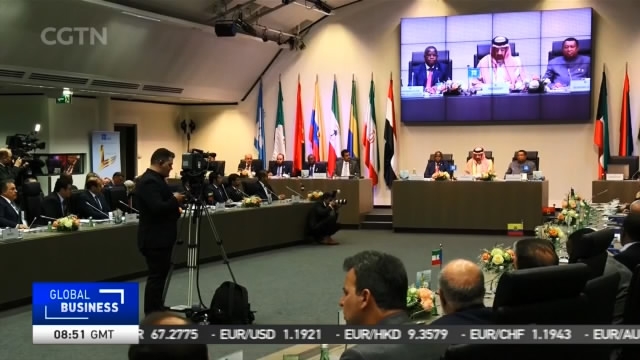
18:19, 11-May-2018
US-Iran Nuclear Deal: Impact of American withdrawal on Iranian economy
02:46

Markets around the world have been reacting carefully to President Trump's decision to pull the US out of the Iran Nuclear Deal. The withdrawal has also raised tensions in the Middle East where there are concerns about its impact on regional trade and security. Nawied Jabarkhyl reports from Dubai.
It's being described as President Trump's boldest foreign policy move yet. With the stroke of a pen, he's pulling the United States out of the Iran Nuclear Deal, meaning US sanctions will soon be re-imposed on the country. Market watchers here in the Middle East say it could have a serious impact on Iran's economy.
GAURAV KASHYAP, MARKET STRATEGIST EQUITI "Following the initial removal of the sanctions back in 2015, Iran immediately had a windfall of about $13 billion coming into their economy. And, we saw growth rates that were in excess of 3-4%. But, in the lead-up to that, in 2013 and 2014, their growth rates were below 1.5%. So, we can expect a major contraction to these levels below 2% in the immediate 6-8 months."
Oil markets have seen a more immediate effect from Mr. Trump's decision. Crude prices have hit their highest levels since November 2014, amid concerns that sanctions could hurt Iran's oil exports. Its total production stands at almost 4 million barrels per day.
ROBIN MILLS, CEO QAMAR ENERGY Robin Mills, CEO, Qamar Energy "If you look back at the last period of sanctions under President Obama, that went down to about 1 million barrels-per-day lost. My expectation is that this time will be much less, because last time Europe entirely stopped taking Iranian oil and there were significant cuts by China, India, Japan and so on. This time, the Europeans are not cooperating, and I think also the Chinese and the Indians as well, will resist cutting a lot more."
Major oil producers Saudi Arabia and the United Arab Emirates have welcomed Trump's withdrawal from the deal. If Iranian supply is hit by sanctions, their exports could plug any gaps. But, they'll also be wary of the OPEC supply cut, which involves cooperation with Iran and has contributed to prices rising over the past 18 months.
ROBIN MILLS, CEO QAMAR ENERGY Robin Mills, CEO, Qamar Energy "If Iranian exports are cut significantly, then obviously prices will go up and I think, in that case, the other OPEC countries and primarily, we mean Saudi Arabia, will really have to step in in that case. Market-wise, they don't want prices to go too high and potentially cause a recession. But secondly, politically, they want pressure on Iran, they've asked the US to do this and so they have to back up the US in stopping the oil market overheating."
NAWIED JABARKHYL DUBAI "It may be too early to fully grasp the economic impact of US sanctions on Iran. But, in the days that have followed the announcement, missiles have been fired at the Saudi capital Riyadh, and Iran and Israel have reportedly confronted each other in Syria. It seems President Trump's decision may risk aggravating tensions in a region that's already bubbling with geopolitical risk. Nawied Jabarkhyl, CGTN, Dubai."

SITEMAP
Copyright © 2018 CGTN. Beijing ICP prepared NO.16065310-3
Copyright © 2018 CGTN. Beijing ICP prepared NO.16065310-3